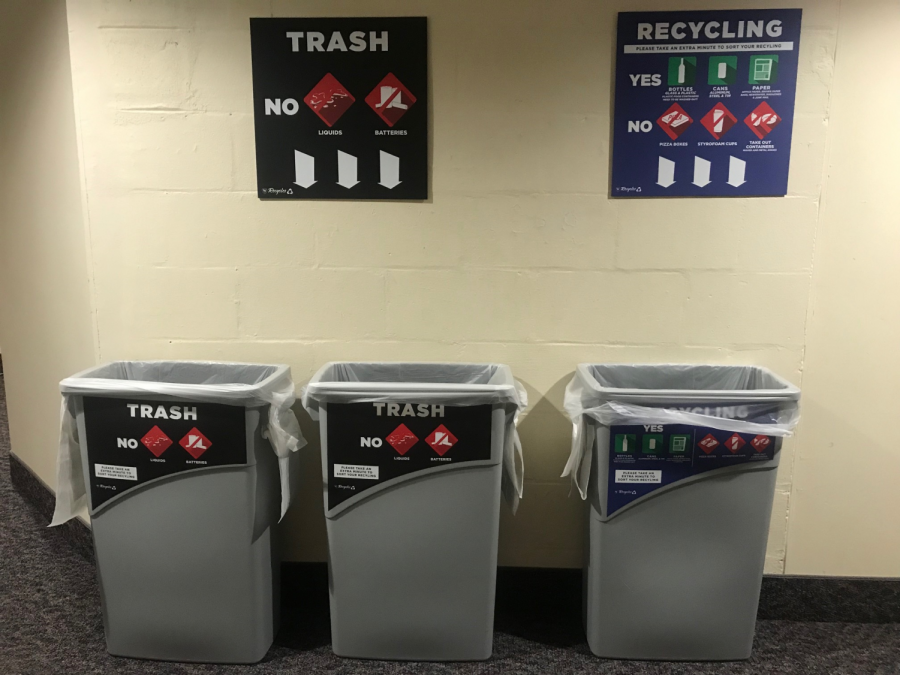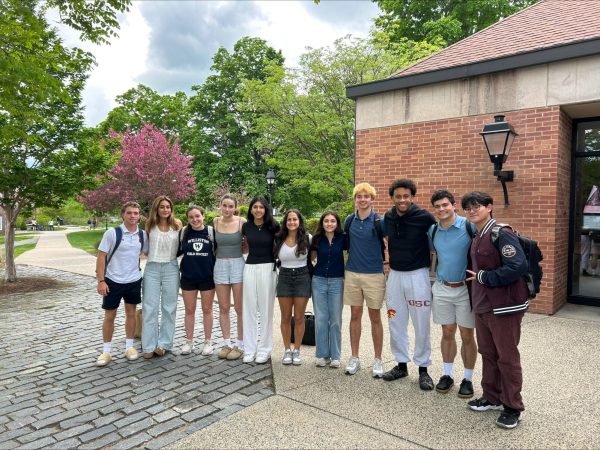Mem Girls Test Out New Recycling Program
Williston is trying to make a change by using Mem East as guinea pigs to test if a new recycling process will be successful in dorms.
According to Katherine Garrity, Assistant Dean of Students and Dorm Head of Mem East, the physical plant staff informed faculty earlier this year that the students were not recycling properly. Physical plant was “frustrated,” Garrity said, because the school pays money to recycle. One of the reasons why recycling was done poorly was because there was food in the trash bins. This lead the dorm heads to come up with a solution to change how recycling is done.
Garrity told The Willistonian that part of the reason it was possible to implement new recycling practices was because of the AP Environmental Science class.
“The environmental science class talked to Joe Zewinsky, part of the physical plant group,” Garrity said. “And he was explaining to them part of the problem [with recycling] and then they [environmental science class] got all excited. And that’s where the water bottle petition started and better recycling started. I think it all happened at the same time, so then we met with them as dorm heads to [ask] what can we do.”
Garrity believed that students weren’t properly informed on how to recycle, which lead to the initial problem.
“So that’s when we started saying, let’s make better signs, lets make it more clear, lets make it possible to really tell what the different bins are for,” she said.
Stella Piasecki ’19, a student of the Environmental Science class, expressed her concerns regarding the amount of effort it takes to recycle when it is not done correctly by the students.
“Recycling effects the Williston community in many ways including the how expensive it is to sort recyclables out from trash and vice versa,” Stella said. “Plus how the price of getting someone to take our recycling off campus, and also when people leave plastic bottles and other discarded items around campus it creates work that other people have to do.”
Recycling and trash are taken care of by Waste Management, a Houston, Texas-based company. On their official website, Waste Management stated that “25% of all items in recycling bins are actually trash.”
Stella continued on to address the major issue regarding recycling at Williston.
“The not knowing is what I think of as the biggest problem at our school concerning recycling, so in my dorm I created two lists: one of things that are recyclable and one of things that are not,” Stella explained.
Jeff Ketcham, the AP Environmental Science teacher, is happy with the role physical plant plays in recycling.
“Mr. McCullagh and Mr. Zewinski of our Physical Plant spend a good deal of time considering and implementing recycling protocols on our campus,” said Ketcham in an email. “They do a very good job staying on top of a system that has a variety of variables and challenges that are outside our control.”
Adamma Eze ’21, is hopeful the new recycling program takes off.
“Basically I think that recycling is really important, it’s hard to get used to at the beginning,” Adamma stated. “But I think it would be really effective in the longer run after this year, I think people will start to get used to it.
Chuck McCullagh, the Chief Financial Officer, told The Willistonian about recycling in a broader aspect and how it brings the Williston community to work together.
“The Williston community is part of the broader community and global community,” McCullagh said in an email. “So any steps we can take as a school to be more environmentally aware means that all of us, in our small corner of the world, are taking steps to help. Recycling is part of that effort.”












